Siamese cats in their senior years often struggle with several health problems. Their health problems are somewhat like those our senior people experience.
Hyperthyroidism, arthritis, kidney failure, and diabetes are common in senior Siamese cats. They face an increased risk of hypertension and lymphoma due to age-related factors. They are also susceptible to hearing and vision problems.
Early diagnosis and management are essential to treating many health problems. Kudos to our unending care and genuine concern; our cats can live longer lives than ever.
This article provides in-depth coverage of the common health concerns among senior cats.
1. Hyperthyroidism
Siamese cats, especially older ones, are prone to developing hyperthyroidism. This condition occurs when a noncancerous tumor known as “thyroid adenocarcinoma” grows. The tumor produces a high amount of thyroid hormones afterward.
Thyroid hormones can affect most organs, causing secondary health issues. These issues may be irregular heart rhythm, hypertension, and kidney disease.
The benign tumor is not the only possible cause of hyperthyroidism in Siamese cats. Other contributing factors may include:
CatVets reports that feline hyperthyroidism affects about 10% of cats over ten. Hyperthyroidism affects most Siamese cats who are ten years old or older. The condition is so prevalent in senior cats.
These are the most typical early warning signs your cat has hyperthyroidism:
Your vet will perform screening tests to check for excess thyroid hormones. Your vet can also conduct a thorough examination to see if there are other damaged organs. Having your cat checked twice a year can help spot signs of hyperthyroidism.
It is crucial to treat Siamese cats who have hyperthyroidism. Vets suggest a variety of treatment and care options most of the time. The choice of therapy depends on your cat’s age and other medical conditions he may have.
Available treatment options include:
2. Arthritis or Degenerative Joint Disease
Arthritis is a condition that worsens over time and affects most older Siamese cats. It affects seventy to ninety percent of cats older than 12 years old. This condition can weaken your cat’s joints and affect his stability and mobility.
The onset of arthritis can take years, depending on the joint changes. Most cat owners say that it affects their cats’ hip bones, spine, and elbows.
Possible causes of arthritis among Siamese cats include:
Arthritis can harm any of your Siamese cat’s joints. The synovial fluid in your cat’s joints loses lubrication when arthritis strikes. Arthritis makes it difficult for him to perform even the simplest of movements.
Having arthritis will make it harder for your cat’s bones to move and flex freely. Your Siamese cat feels uncomfortable and, sooner or later, weak because he can not move around as much.
The most noticeable symptoms of arthritis in cats are:
Set up a consultation with your vet if your cat shows any of the above symptoms. Your vet will conduct an in-depth examination to find out what is wrong with your cat’s joints. You can also request a customized plan to help you manage your Siamese cat’s weight if he’s overweight.
Your vet will recommend a course of treatments designed to get your cat feeling better. Among them are:
3. Renal Disease or Chronic Kidney Disease (CKD)
Chronic Kidney Disease is a fatal condition that affects senior cats. Senior Siamese cats are vulnerable to chronic kidney disease, with 30% experiencing symptoms.
The leading causes of long-term kidney damage in cats are:
Your Siamese cat’s kidneys can filter a high volume of blood. It will be a while before you see any indications of kidney disease. Most symptoms appear when a sizable part of the kidney tissue is already damaged.
Here are some clinical symptoms of chronic renal failure:
Chronic kidney disease is one of the most despised diseases among cat parents. No curative therapy can reverse the kidney damage caused by this disease. Even so, early diagnosis and proper management can slow kidney damage’s progression.
Be sure to keep all appointments with your vet so they can keep a close eye on your senior cat. Your vet can help if the disease progresses since there is still no good curative therapy.
Keeping your cat’s teeth healthy and providing fresh water can aid in managing CKD. Controlling hypertension and changing your cat’s diet can help slow kidney damage.
4. Diabetes Mellitus
Diabetes is a common health issue among senior Siamese cats. It interferes with their ability to regulate blood sugar levels. It can also lead to fatal complications if left untreated.
Siamese cats over the age of seven are more susceptible to developing diabetes. Diabetes is more common in older male cats than in older female cats.
The following are the most common reasons why senior cats develop diabetes:
Some instances of this condition are treatable. Others do not react well to the administered medication.
These are the symptoms that may present themselves if your cat suffers from diabetes:
Insulin injections and a low-carbohydrate diet are treatment options for diabetes. Regular checkups with your vet are essential if your Siamese cat has diabetes. Be sure to attend all scheduled appointments. Your vet needs to check your cat’s blood glucose levels. Your vet can also inform you if there are necessary adjustments for the insulin dosage.
Other symptoms may emerge later on as well. Keep a close eye on your cat at home and be alert for other symptoms.
Playing with your cat and getting him to move around will help maintain his blood sugar levels. Your cat has a good chance of living longer with early diagnosis and treatment.
5. High Blood Pressure
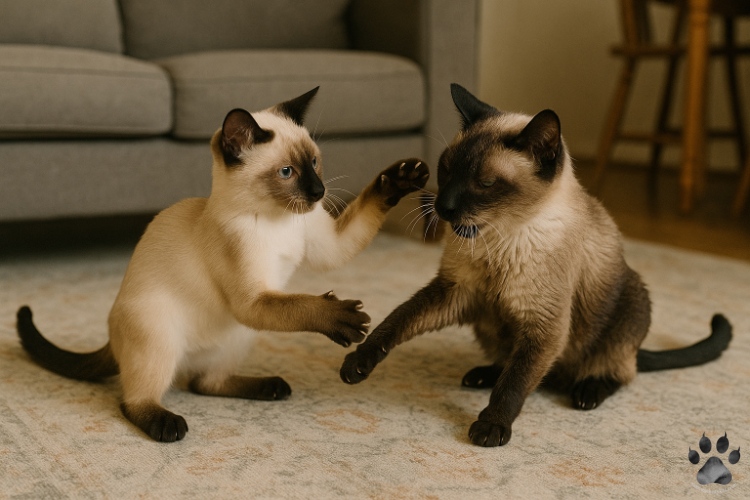
Siamese cats in their senior years have a higher risk of developing hypertension. Disorders of the thyroid, the heart, and the kidneys can all contribute to high blood pressure.
Instances of hypertension are often brought on by:
Finding the cause of hypertension and treating it is crucial. Your vet will inform you of the target organs involved in the treatment. He will assist you in how you can help your cat avoid serious complications later on.
You might observe any of the following in your Siamese cat if he has hypertension:
Keeping your cat’s stress levels down will aid in controlling his hypertension. Regular checking of his blood pressure is also vital. Blood pressure checks must be a part of your cat’s routine, especially if he is over ten years of age.
Keep an eye out for adverse reactions if your vet prescribed hypertension medication. Remember to ask if you need to adjust the dosage for your cat over time.
6. Cancer
There is much to learn and comprehend about cancer in older cats. Siamese cats ten years old or older have an increased risk of developing cancer.
Cancer happens when abnormal cells form and multiply in certain parts of a cat’s body. It causes a mass of abnormal cells to gather together, forming a tumor. Lymphoma, mammary gland cancer, and squamous-cell carcinoma are frequent cases in Siamese cats.
Most cases of cancer in senior Siamese cats are lymphoma. Lymphoma has a profound effect on the digestive system. It can affect the lymph nodes in their armpits or inside of the thighs.
In most cases, these signs go with lymphoma in felines:
Several treatments work well for specific cancer types. These include chemotherapy, surgery, and radiation treatment.
Chemotherapy is the best remedy for lymphoma in cats. Changing to an omega-3-rich diet and taking supplements like B-glucans can also help.
Regular vet checkups are essential to get accurate diagnoses and start immediate care. Some cancer types are challenging to treat but are manageable. Treatment of clinical symptoms can help delay progression.
Do Senior Siamese Cats Get Dementia?
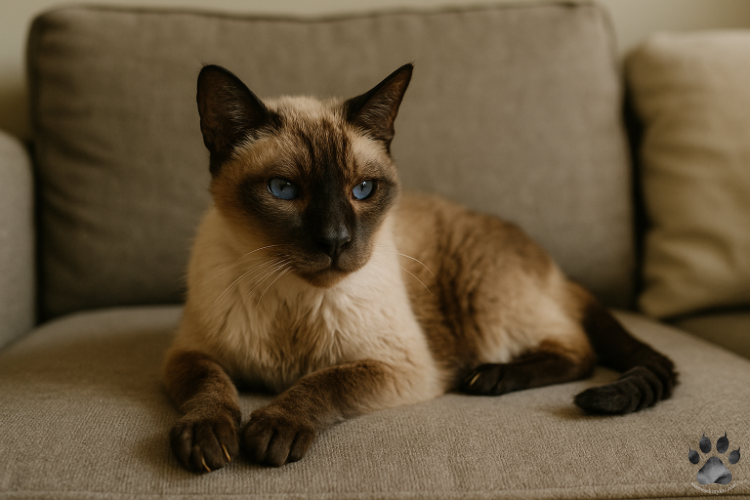
Most Siamese cats suffer from cognitive dysfunction syndrome in old age. They begin to exhibit cognitive aging symptoms when they are seven years old and older. Dementia is common in senior cats.
Aging brings about many cognitive changes for your cat. Discuss this matter with your vet if you have noticed changes in your cat’s behavior.
How Do Siamese Cats Behave When They Are Older?
The behavior of our Siamese cats changes with age. Their routines and fervor change as they age, more like ours.
Senior cats are much more relaxed than young or middle-aged cats. They start to lose eagerness to play and are content to lounge around. They get bored fast and enjoy napping several times a day.
Also, they are fast to get irritated. They prefer to isolate themselves and spend most of their time alone.
Being the Best Companion for Your Siamese Cat in Their Senior Years
Your cat will benefit from a more successful treatment if you and your vet catch the problem early. Be on the lookout for unusual behaviors and sudden physical changes in your cat. Talk to your vet if you have concerns. Caring for our cherished senior cats is a responsibility and privilege. Many thanks for reading! I hope you found this article helpful.

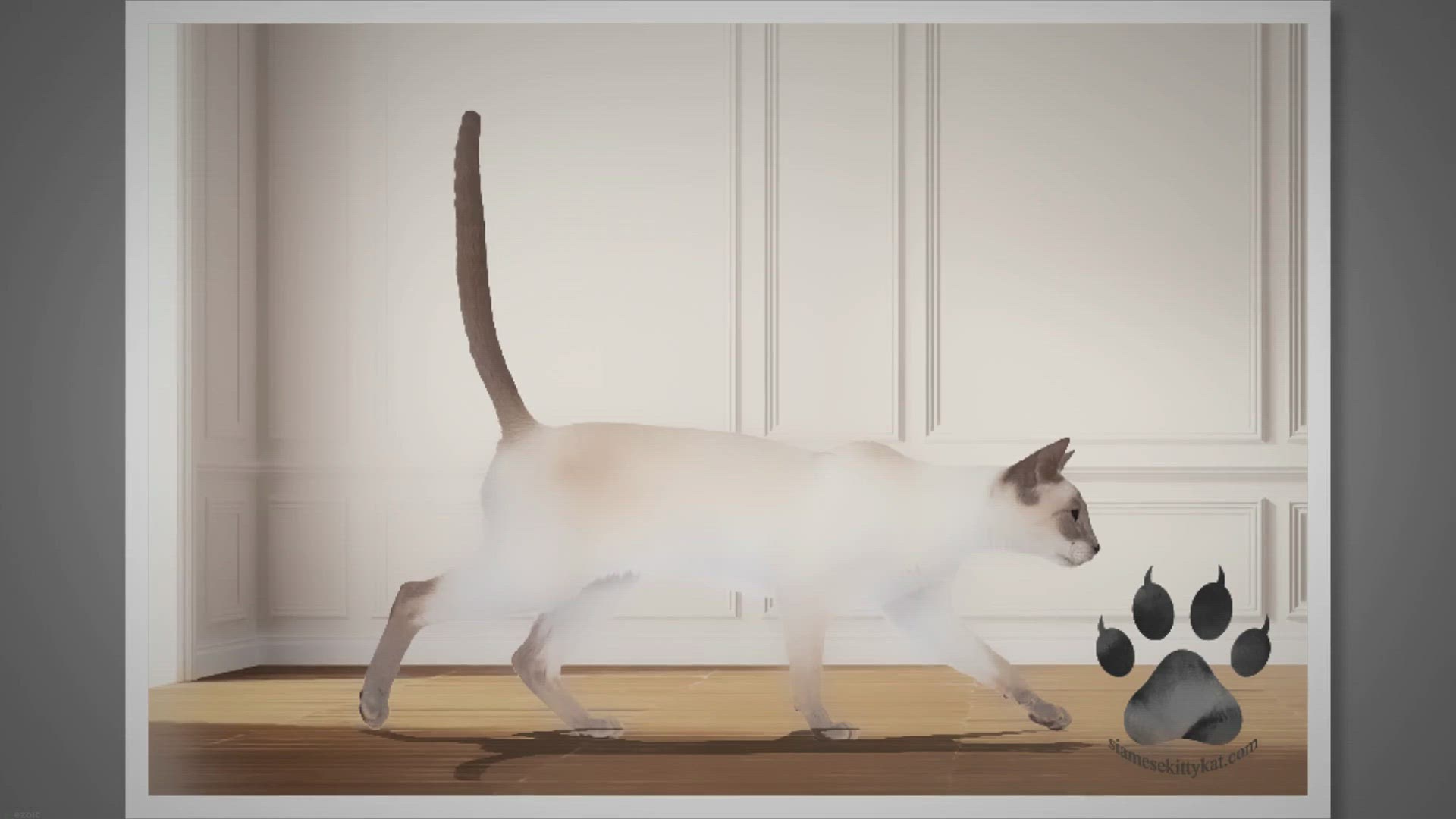

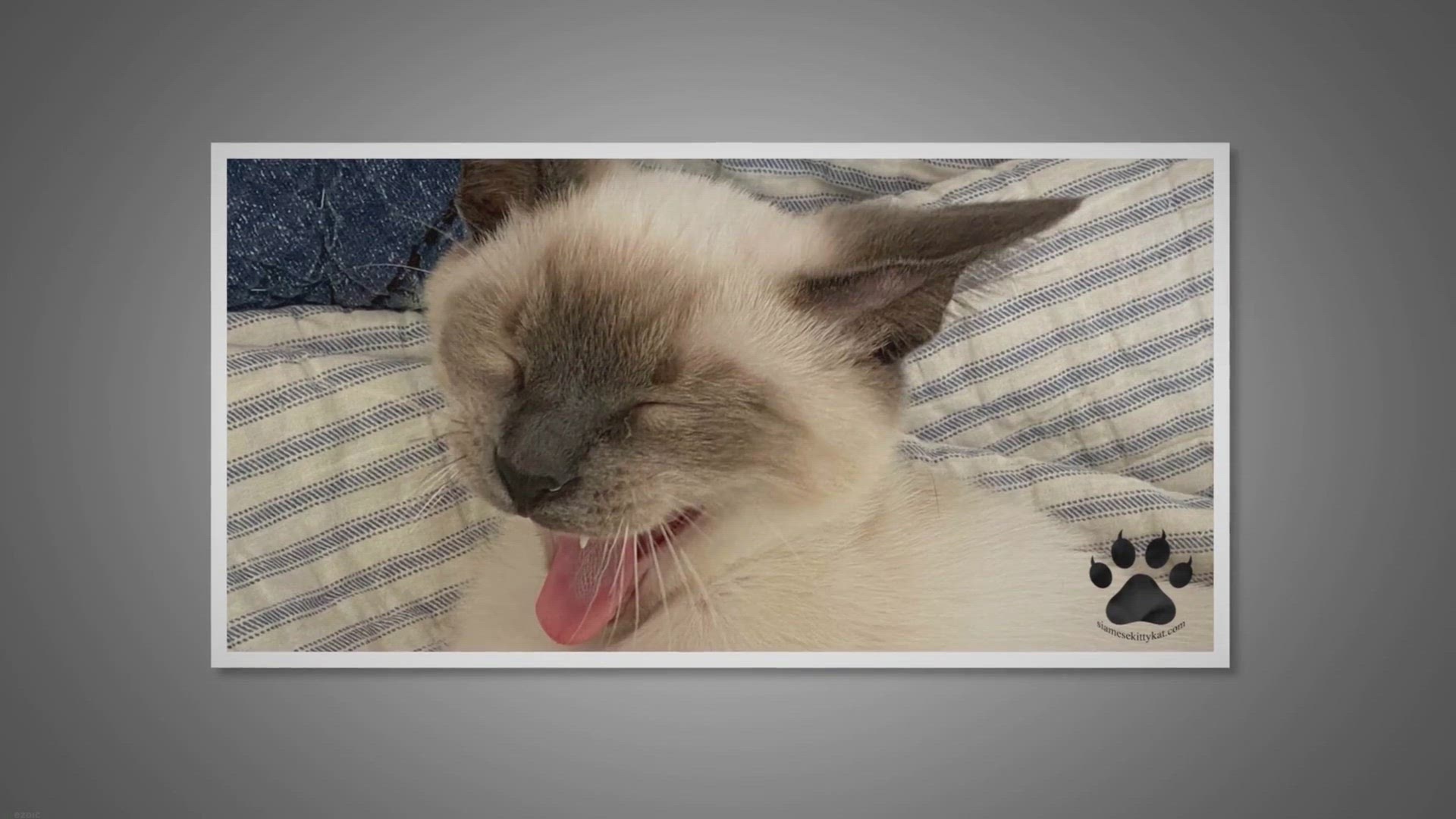
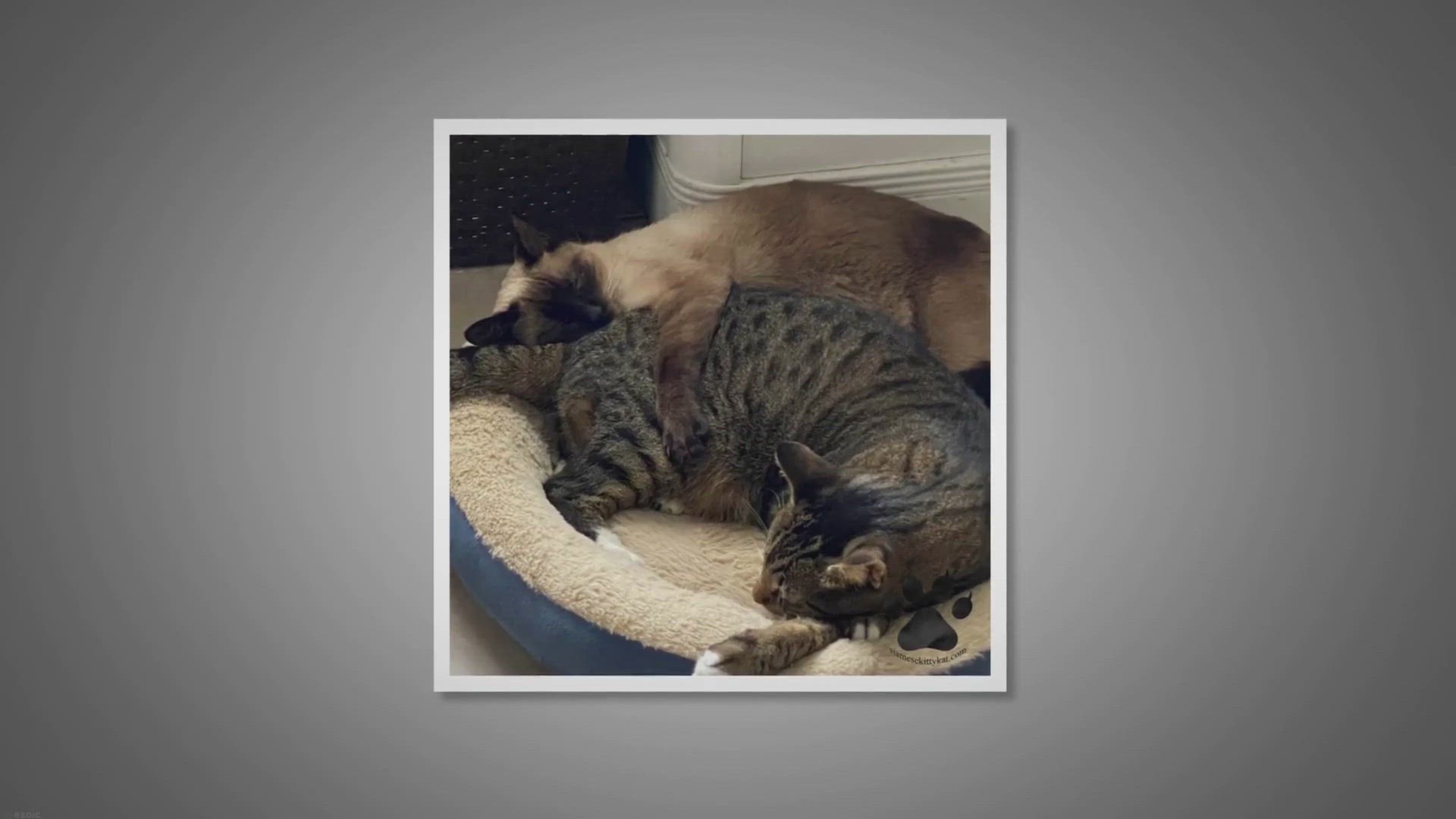
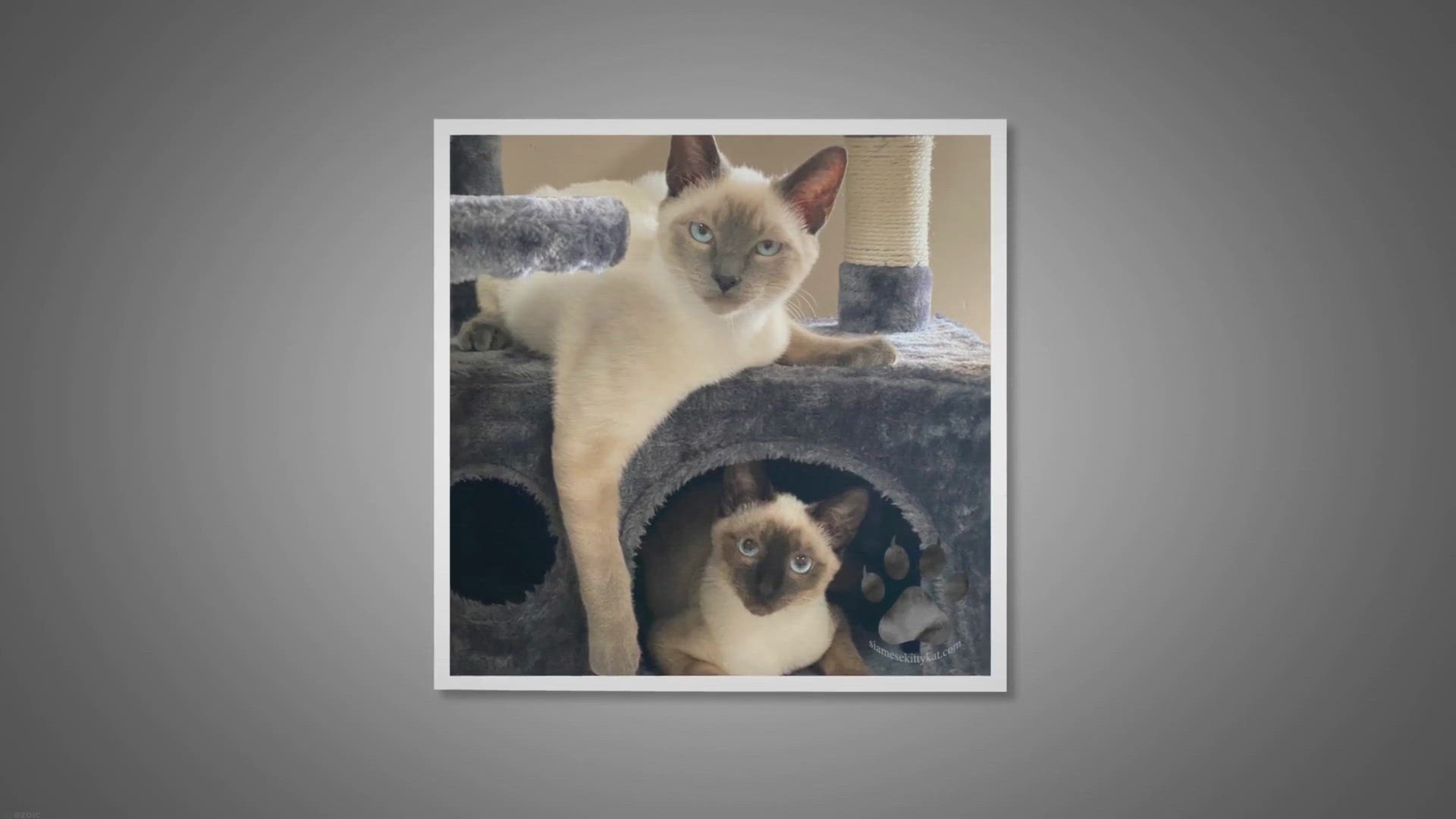
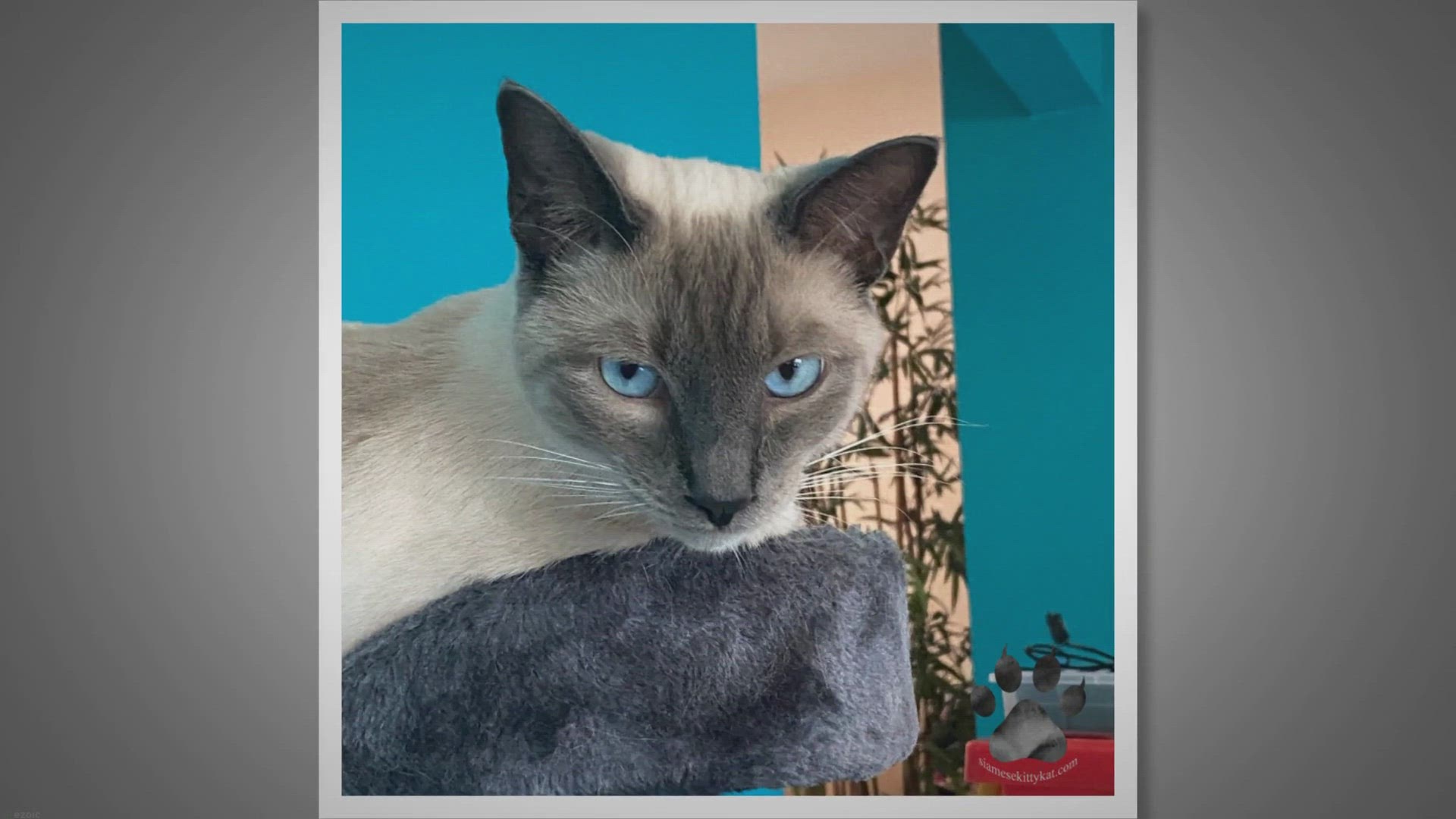
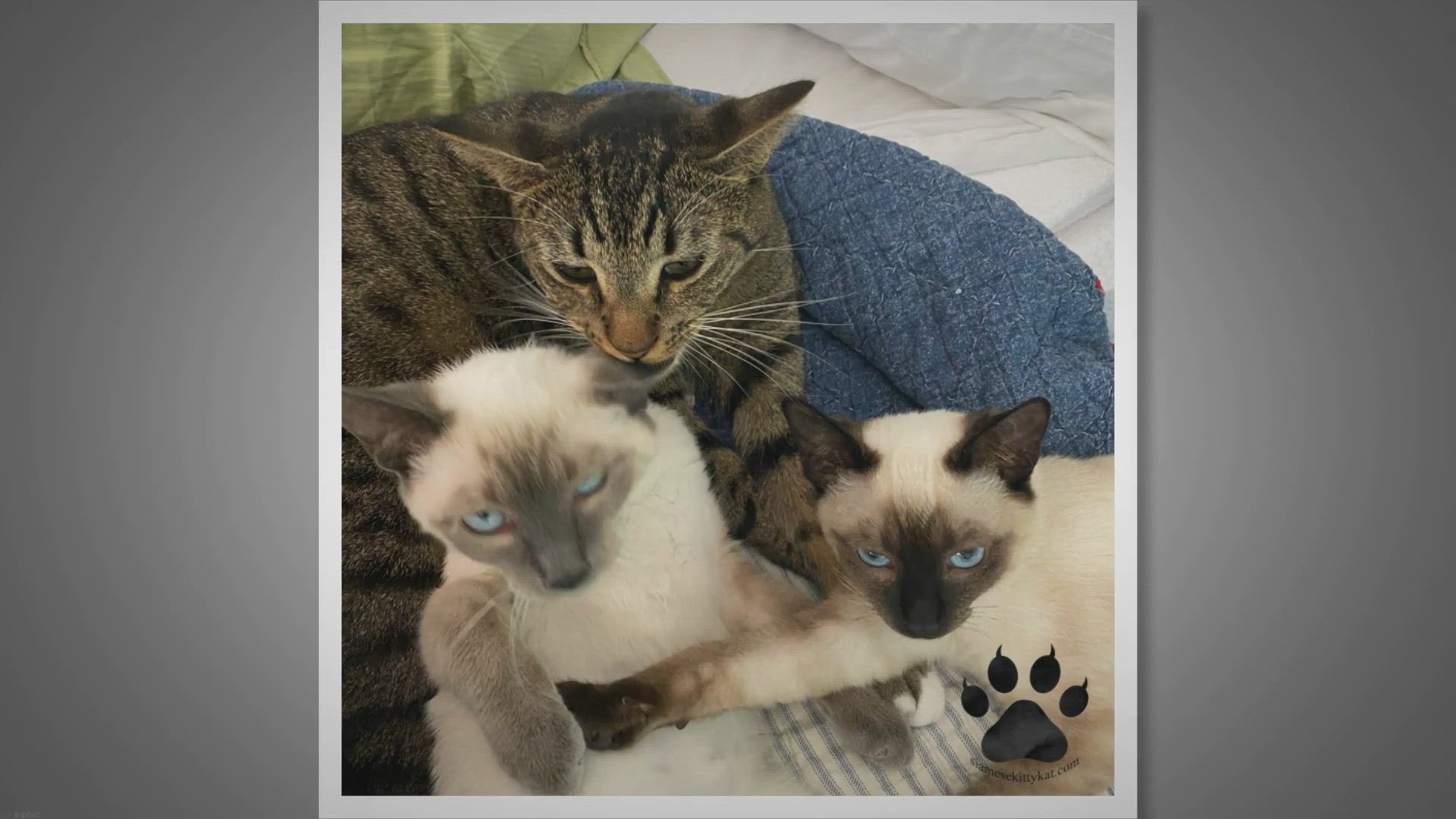
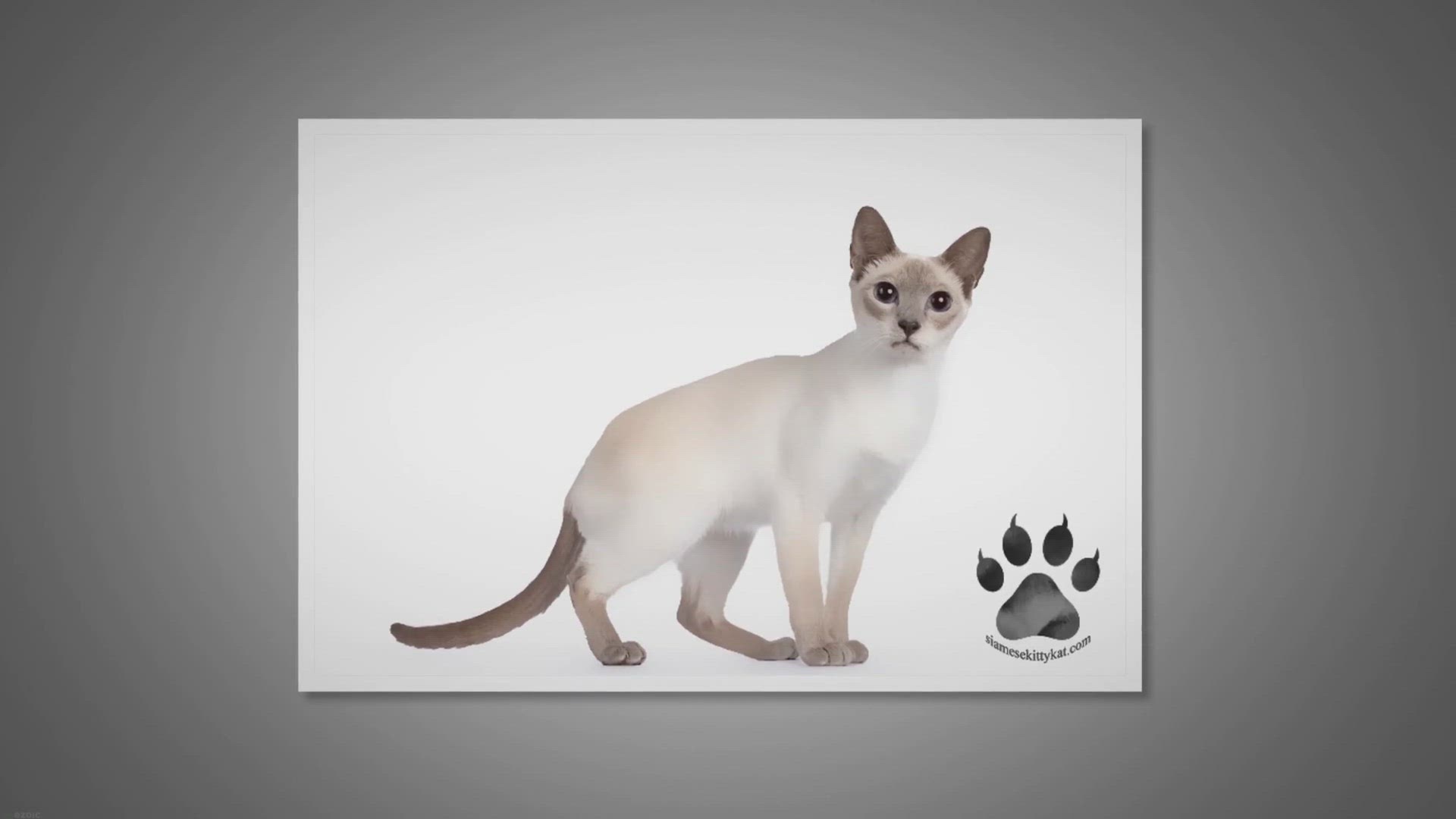
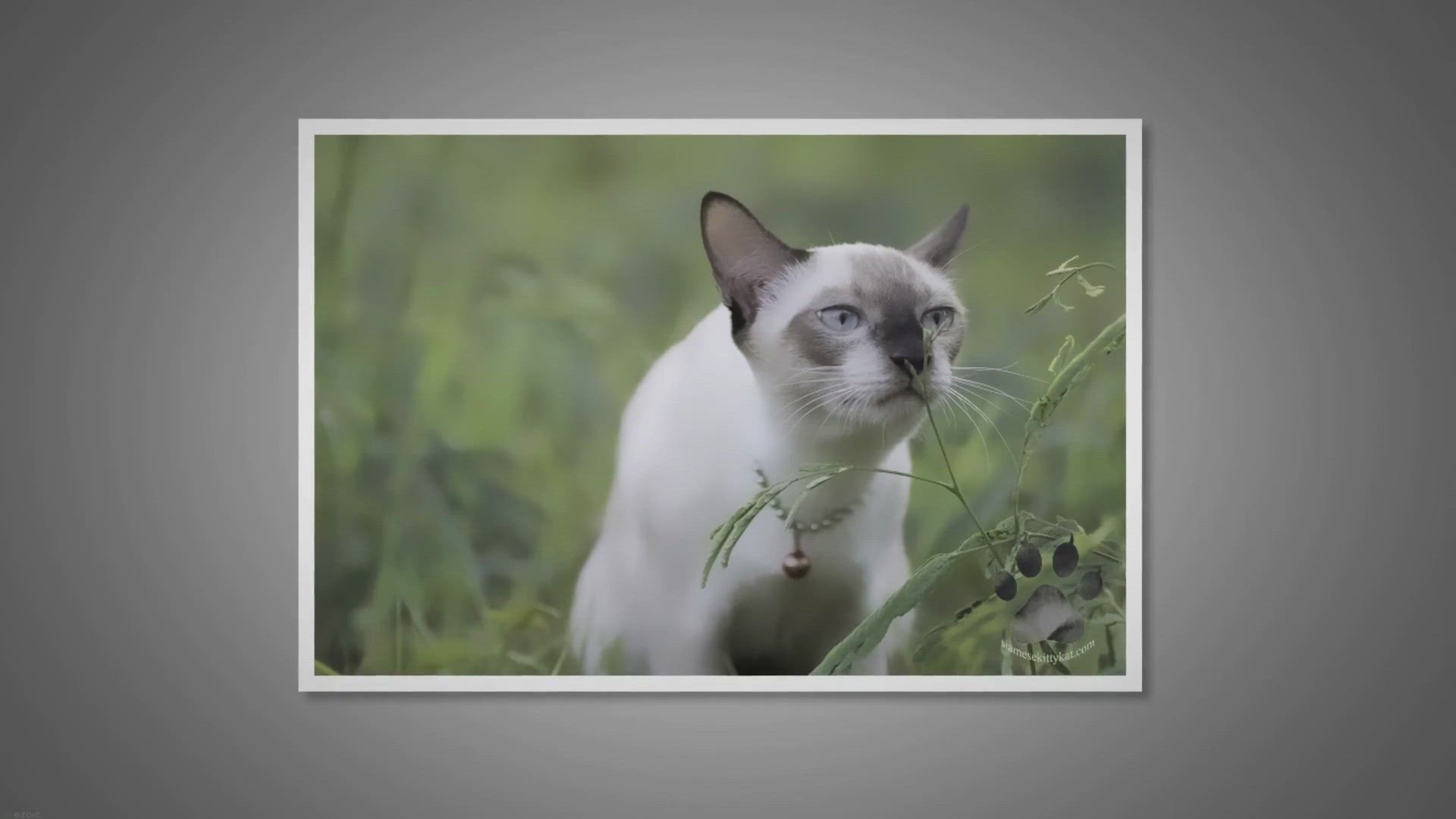
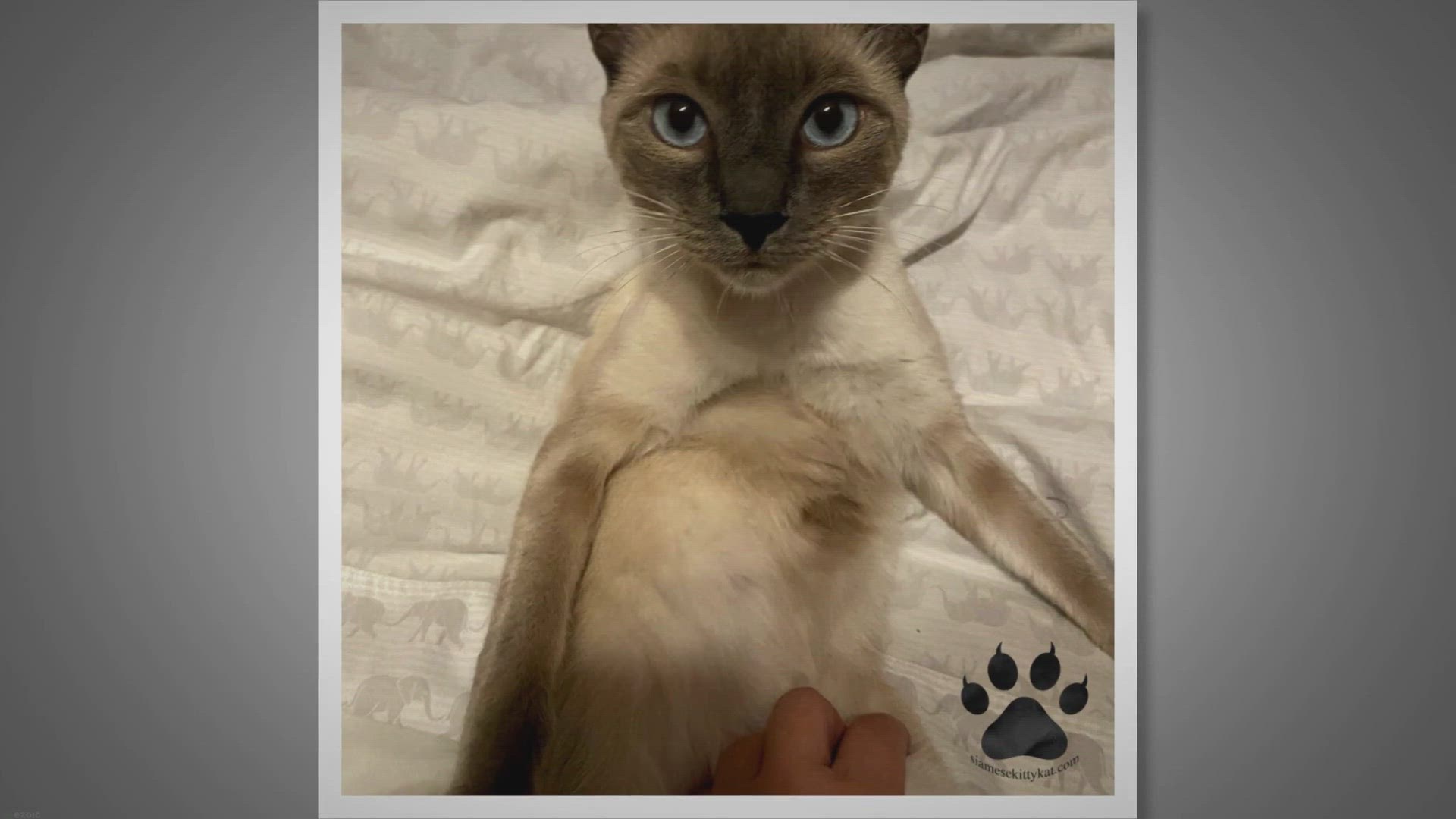
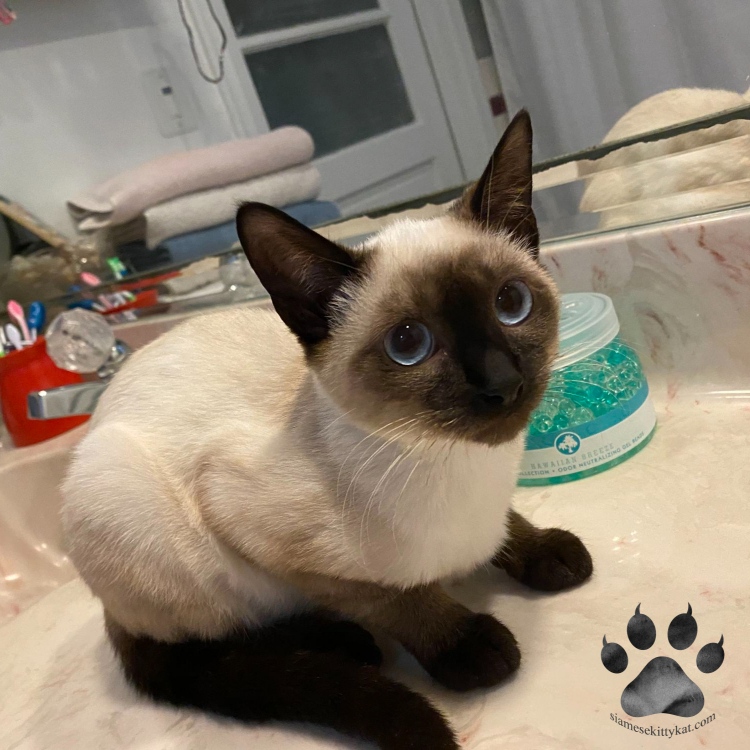
 Affiliate Link Notice
Affiliate Link Notice